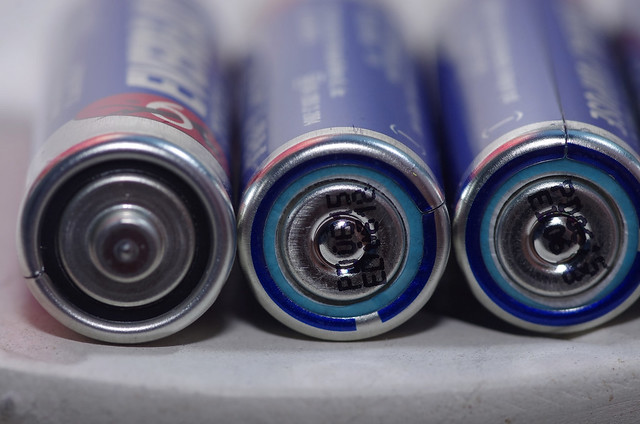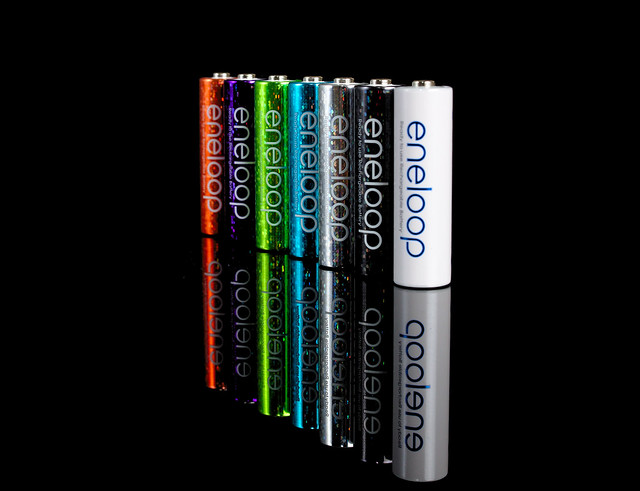Where can you recycle lithium batteries? – Information and Places
APR 09, 2020 Pageview:1221
With the constant growth of the technology industry, it’s safe to say that we are all surrounded by electronic devices. However, something not everybody knows is the type of battery that they use.
A few years ago, other types of batteries were used, such as nickel-cadmium batteries. Nonetheless, with the development of lithium-ion batteries, they became more and more popular by the day; because due to their density and voltage transmission, they are much more efficient than those made with other elements.
Although initially lithium-ion batteries were regarded as not being toxic, over the years it has been proven that they are. This is the main reason why a lot of enterprises preach the recycling of these power sources.
Because of this reason, recycling lithium-ion batteries will exert a direct influence on the environment. You won’t only prevent pollution from toxic substances – you can actually avoid hazardous situations like fires.
This is because changes in pressure or temperature surrounding these batteries are possible fire starters. At the same time, this is very frequent during the summers, especially when the batteries are just thrown away in a garbage can that also contains paper and cardboard. Any small spark can create a fire, even in the garbage or recycling truck.
If you think the garbage can or recycling truck are the only ones in danger of setting on fire, think again… and imagine one of these batteries lying around in your kitchen near your children. When taking that into account, it’s no surprise that recycling becomes much more critical.
When do you think you need to recycle your lithium batteries?
The easiest way to know when your batteries are apt to be recycled is when they discharge entirely. Of course, this is true with single-use batteries. When the battery dies, instead of throwing it away on a garbage can – which would be dangerous – you can seek the way to recycle it.
It is essential to notice that a lot of chemicals inside the lithium-ion batteries are not only hazardous for the environment. In essence, they can also represent a danger to humans, especially children. Therefore, having a used battery inside a household can pose a threat.
The battery can have leakages and damage the area that surrounds it, and this acid can be hazardous for children. It’s essential to keep them away from the lithium-ion power sources, and the best way to do this is to recycle them as fast as possible.
How do you get the information of recycling lithium batteries?
The best method to get information regarding how to recycle your lithium-ion batteries is to consult with your local recycling services administration. They will provide you with all the information needed to recycle them.
However, if you need quick data, one way to do this is to search the web to see if there’s a webpage on your local recycling services. By doing this, you can also find out ways to store them safely, at least until you are able to take them to the place.
The general tips for the recycling of these batteries involve taking them straight away to the place, however, if it is not possible; what’s most important is to keep them away from the reach of children and from anything flammable inside your household. Nonetheless, it is undeniable that they must be taken to the recycling place as soon as possible.
Where do you get battery recycling services?
These services depend on where you live, but in most cases, you will have to take your batteries to a recycling center. This is due to the fact that lithium-ion batteries cannot be recycled the way other materials can, like paper, cardboard or plastic.
The regular disposal of lithium-ion batteries not only creates toxicity for the environment, but it is also a dangerous element to add to a garbage can. Therefore, finding the proper recycling services is important if you have dead batteries within your house.
One of the main reasons why recycling these batteries is an important thing to do as soon as they die is because of their main characteristic: lithium. This is an element known for being highly reactive. Therefore, with the tiniest spark, it can burst into flames.
Besides, another aspect important about the recycling of these batteries is the fact that they go through different processes which differ from conventional recycling methods. For example, an effortless way – one with which even children learn – to recycle is to separate glass, plastic and paper.
However, with lithium-ion batteries, they have to be completely deactivated and disassembled (this is particularly true for the ones that come from vehicles) before all the chemical, mechanical and electrolyte processes happen; which will allow the recovery of a lot of elements such as copper, cobalt or aluminum.
Technology is a field that’s constantly changing, and it has led to the creation of better power sources for the devices. However, more efficient batteries do not equal to perfect ones, and lithium-ion batteries are certainly far from that.
Taking this into account, even though we’re constantly surrounded by batteries, especially those made with lithium ions, a lot of people don’t know the hazards related to having a discharged one lying around the household, particularly when there are children at home.
Because of this, learning the possible effects of not recycling lithium-ion batteries is an effective way to understand the importance of practicing the recycling of them. At the same time, it’s a behavior that also helps the environment by preventing pollution and recovering usable elements.
When one of your single-use batteries dies, remember to put it away in a place that’s far away from flammable objects; and get informed by your local recycling services. The best thing to do is to take the battery there right away in order to prevent dangers; nonetheless, if that’s not possible, securing your home’s safety is the first thing to do.
- Prev Article: Best Lithium-ion Battery Booster – Working and Advantages
- Next Article: Can you take a lithium battery charger on a plane?
Leave Message
Hottest Categories
-
Hottest Industry News
-
Latest Industry News












